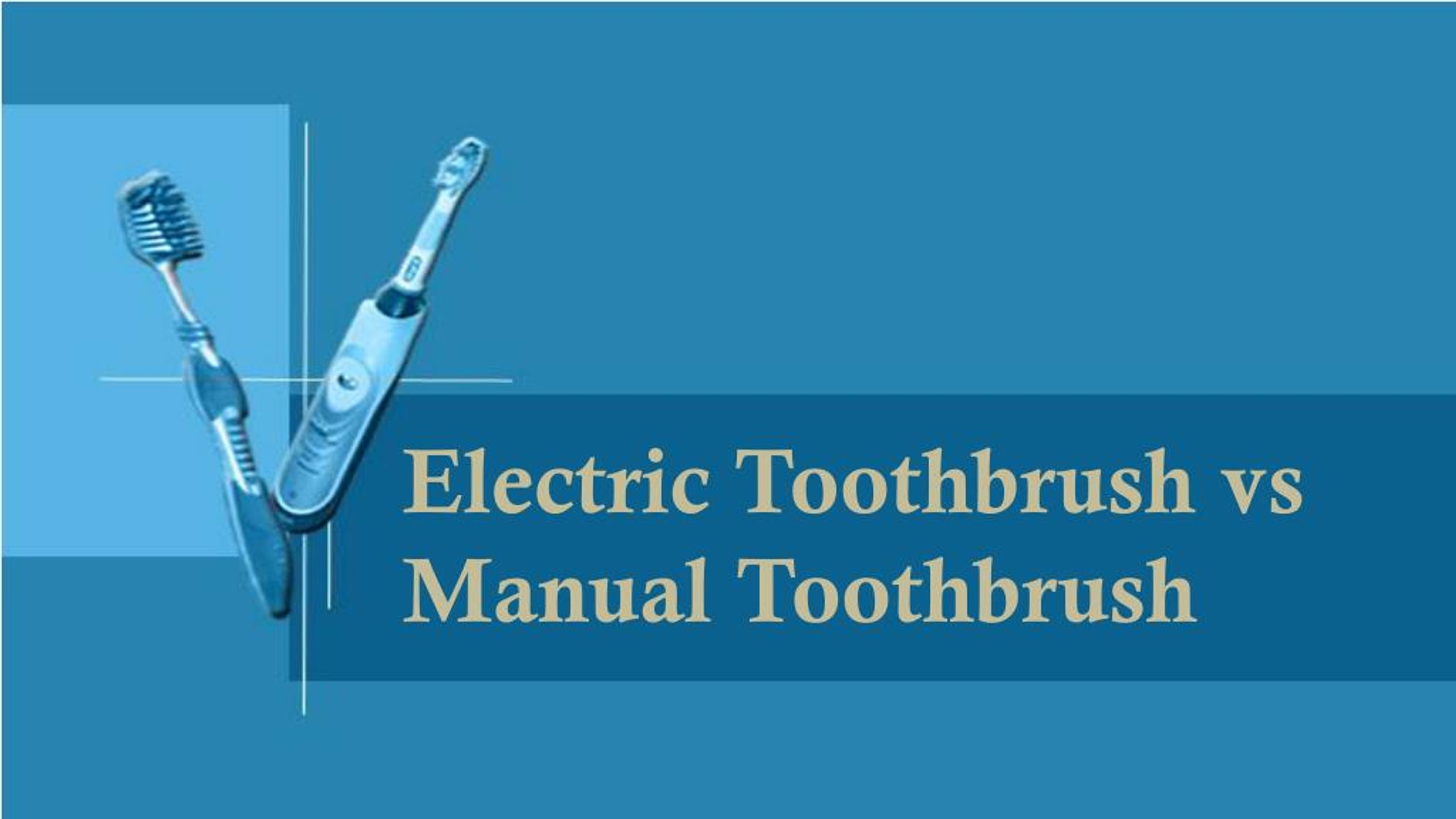Is It Better to Use an Electric or a Manual Toothbrush?
※ Download: Is an electric toothbrush better than a manual toothbrush
Yet in the 1990s, electric toothbrushes came to be a popular alternative to the traditional, manual style. If you use a small headed electric toothbrush, such as an , round, oscillating head, reaching these awkward areas can be easier, particularly areas at the back of your mouth, but there are techniques that can help with this problem if you use a manual toothbrush. Plus, dentists warn that using the electric tool from an early age may interfere with the development of the motor skills which are necessary for manual brushing.

May improve oral health in people with orthodontic appliances found that electric toothbrushes were particularly helpful for people with orthodontic appliances, such as braces, because it made brushing easier. Anthony Komaroff is a practicing physician, Professor of Medicine at Harvard Medical School, and Editor in Chief of the Harvard Health Letter. We have to do our homework. Both traditional electric and sonic toothbrushes have rotating and oscillating features to remove plaque.

Is It Better to Use an Electric or a Manual Toothbrush? - As a general rule, Hermiston recommends that children up to age 7 have adult supervision while brushing.

When faced with the vast array of available options choosing a toothbrush can be a headache, and the addition of electric toothbrushes in recent years may have added to your confusion. But are electric toothbrushes actually a better choice than manual ones? With correct brushing technique optimal results can be achieved with both manual and electric toothbrushes, says Dr Peter Alldritt, chairman of the Australian Dental Association's oral health committee. The whole reason we brush and floss our teeth is to remove plaque, which is a biofilm of bacteria that tries to attach itself to our teeth. The right brushing technique achieves a perfect balance between getting the toothbrush close to the gum so you remove all the plaque from the gum line, without pressing too hard and causing damage to the teeth and gums, Alldritt says. It's this difficulty in achieving the perfect balance that may mean some people are better off using an electric toothbrush. When electric may be better For the many people who struggle to brush their teeth properly with a manual toothbrush, an electric toothbrush can be an improvement because it is less dependent on brushing correctly. People with arthritis in their hands or other disabilities may also find it easier to hold an electric toothbrush because they have a bigger handle than manual ones. Oral hygiene tips No matter which toothbrush you choose, the rules for maintaining oral hygiene are the same and brushing technique will always be of the utmost importance. Plaque starts to form near the gum line not on the top of the tooth, so when you are brushing aim the toothbrush bristles at the gum line, then move the toothbrush in a circular motion so that it sweeps plaque away from the gums, Alldritt says. Don't just brush randomly in all sorts of places, start in one area and work your way around. Dr Peter Alldritt is chairman of the Australian Dental Association's oral health committee. He was interviewed by Jenny Pogson.
The truth is both manual and electric toothbrushes have demonstrated effectiveness in maintaining dental health. While these smart toothbrushes come packed with a variety of features, they all have the same goal in mind: to make you brush better. DEAR READER: What matters most is that you brush your teeth at least twice a day. An electric toothbrush is only a fraction of what it costs to complete a deep cleaning or scaling and root planing. As a customer, you can choose from small, standard and large heads with soft, medium or hard bristle in different colours. This may be especially true for people with conditions that limit mobility, such as painful.



